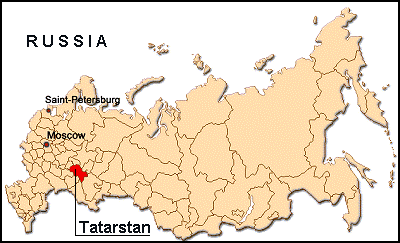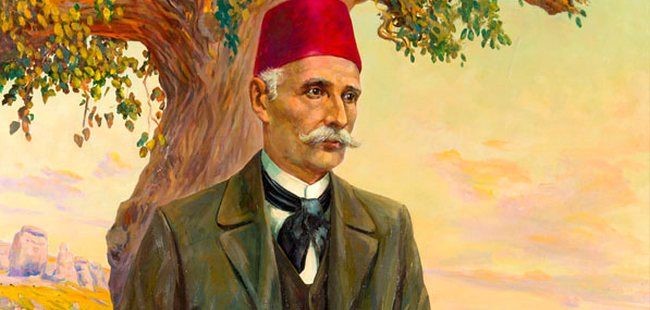Andrew McGregor
December 16, 2010
Russian security forces conducted a special operation in the Tatarstan village of Novoye Almetyevo against a group of three Islamist militants. The gunmen attracted the attention of security forces after firing on a wildlife enforcement officer who thought they were poachers and shooting at the car of a private security firm in the Nurlatsky district (Itar-Tass, November 25).

The security forces arrived in strength, deploying armored vehicles, an Mi-8 helicopter, and 500 members of the FSB (Federal’naya Sluzhba Bezopasnosti – Federal Security Service) and the Interior Ministry’s OMON (Otryad Militsii Osobogo Naznacheniya – Special Purpose Police Units) (Islamic News, December 2). The three insurgents were killed after a gunfight lasting two hours.
The militant cell included 26-year-old Almaz Davletshin, described as a “radical cleric” who had previously served four years in prison for the theft of scrap metal, Ruslan Spirodonov, wanted for an unsuccessful November 11 bombing of a police car in Chistopol, and Albert Khusnutdinov. The men were each armed with an assault rifle and a grenade launcher.
A day after the gun-battle, security forces discovered a dugout in the nearby village of Butaikha. The dugout was believed to belong to the three insurgents and contained clothing, a pistol silencer, mobile communications gear, bomb-making equipment and a USB stick which contained bomb-making instructions and “rules of conduct for a young mujahid” (Interfax, November 30).
Tatarstan is a highly industrialized autonomous republic that produces much of Russia’s arms, chemicals and automobiles. Though official Islam in the republic has been known for its opposition to Salafism, the former Mufti of Tatarstan and current leader of the Center for Research on the Koran and the Sunna, Farid-Hazrat Salman, claims that radical Wahhabists have infiltrated the traditionally moderate Spiritual Board of Muslims of Tatarstan (DUM), becoming the dominant trend in that institution with the financial support of Saudi Arabia (Nezavisimaya Gazeta [Moscow], December 6). Nevertheless, current Mufti Gusman Iskhakov (accused by Salman of being a Wahhabist) warned Tatarstan Muslims in the aftermath of the raid not to “succumb to provocations,” warning that “certain political forces in our country do not want our peace and tranquility, and seek all ways to sow discord and confusion among us” (Islamic News, December 2).
 Founder of Jadidism Ismail Gaspirali
Founder of Jadidism Ismail Gaspirali
The Tatars of the Volga-Ural region of Russia converted to Islam in the 10th century and today form the largest minority group in Russia. The arrival of radical conservative Salafism in recent years poses a major challenge to Tatar Islam, which is based on both traditional Sufism and the indigenous modernizing trend of Jadidism (a reformist and pan-Turkic attempt to reconcile Eastern Islam with Western thought and science) since the 19th century. Like most parts of Islamic Russia, Tatarstan was significantly secularized during Soviet rule, but is now enjoying an Islamic revival, though this has involved several competing trends. The entry of Salafism to the region in the 1990s has been aided by the relatively poor knowledge of Islamic theology held by many Tatar imams.
A recent conference of Islamic scholars in the Tatarstan capital of Kazan warned that growing extremism in the republic could lead to the development of an “Ingush-Dagestani scenario,” referring to the growth of religiously inspired armed militant groups carrying out attacks in previously stable regions of the Russian Federation.
This article first appeared in the December 16, 2010 issue of the Jamestown Foundation’s Terrorism Monitor.
